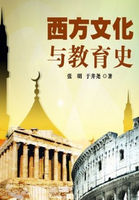Such as we have seen is the wealth of England, a mighty mass, and made good in whatever details we care to explore. The cause and spring of it is the wealth of temperament in the people. The wonder of Britain is this plenteous nature. Her worthies are ever surrounded by as good men as themselves; each is a captain a hundred strong, and that wealth of men is represented again in the faculty of each individual, -- that he has waste strength, power to spare. The English are so rich, and seem to have established a tap-root in the bowels of the planet, because they are constitutionally fertile and creative.
But a man must keep an eye on his servants, if he would not have them rule him. Man is a shrewd inventor, and is ever taking the hint of a new machine from his own structure, adapting some secret of his own anatomy in iron, wood, and leather, to some required function in the work of the world. But it is found that the machine unmans the user. What he gains in making cloth, he loses in general power.
There should be temperance in making cloth, as well as in eating. Aman should not be a silk-worm; nor a nation a tent of caterpillars.
The robust rural Saxon degenerates in the mills to the Leicester stockinger, to the imbecile Manchester spinner, -- far on the way to be spiders and needles. The incessant repetition of the same hand-work dwarfs the man, robs him of his strength, wit, and versatility, to make a pin-polisher, a buckle-maker, or any other specialty; and presently, in a change of industry, whole towns are sacrificed like ant-hills, when the fashion of shoe-strings supersedes buckles, when cotton takes the place of linen, or railways of turnpikes, or when commons are inclosed by landlords. Then society is admonished of the mischief of the division of labor, and that the best political economy is care and culture of men; for, in these crises, all are ruined except such as are proper individuals, capable of thought, and of new choice and the application of their talent to new labor. Then again come in new calamities. England is aghast at the disclosure of her fraud in the adulteration of food, of drugs, and of almost every fabric in her mills and shops; finding that milk will not nourish, nor sugar sweeten, nor bread satisfy, nor pepper bite the tongue, nor glue stick. In true England all is false and forged. This too is the reaction of machinery, but of the larger machinery of commerce. 'Tis not, I suppose, want of probity, so much as the tyranny of trade, which necessitates a perpetual competition of underselling, and that again a perpetual deterioration of the fabric.
The machinery has proved, like the balloon, unmanageable, and flies away with the aeronaut. Steam, from the first, hissed and screamed to warn him; it was dreadful with its explosion, and crushed the engineer. The machinist has wrought and watched, engineers and firemen without number have been sacrificed in learning to tame and guide the monster. But harder still it has proved to resist and rule the dragon Money, with his paper wings. Chancellors and Boards of Trade, Pitt, Peel, and Robinson, and their Parliaments, and their whole generation, adopted false principles, and went to their graves in the belief that they were enriching the country which they were impoverishing. They congratulated each other on ruinous expedients.
It is rare to find a merchant who knows why a crisis occurs in trade, why prices rise or fall, or who knows the mischief of paper money.
In the culmination of national prosperity, in the annexation of countries; building of ships, depots, towns; in the influx of tons of gold and silver; amid the chuckle of chancellors and financiers, it was found that bread rose to famine prices, that the yeoman was forced to sell his cow and pig, his tools, and his acre of land; and the dreadful barometer of the poor-rates was touching the point of ruin. The poor-rate was sucking in the solvent classes, and forcing an exodus of farmers and mechanics. What befals from the violence of financial crises, befals daily in the violence of artificial legislation.
Such a wealth has England earned, ever new, bounteous, and augmenting. But the question recurs, does she take the step beyond, namely, to the wise use, in view of the supreme wealth of nations?
We estimate the wisdom of nations by seeing what they did with their surplus capital. And, in view of these injuries, some compensation has been attempted in England. A part of the money earned returns to the brain to buy schools, libraries, bishops, astronomers, chemists, and artists with; and a part to repair the wrongs of this intemperate weaving, by hospitals, savings-banks, Mechanics' Institutes, public grounds, and other charities and amenities. But the antidotes are frightfully inadequate, and the evil requires a deeper cure, which time and a simpler social organization must supply. At present, she does not rule her wealth. She is simply a good England, but no divinity, or wise and instructed soul. She too is in the stream of fate, one victim more in a common catastrophe.
But being in the fault, she has the misfortune of greatness to be held as the chief offender. England must be held responsible for the despotism of expense. Her prosperity, the splendor which so much manhood and talent and perseverance has thrown upon vulgar aims, is the very argument of materialism. Her success strengthens the hands of base wealth. Who can propose to youth poverty and wisdom, when mean gain has arrived at the conquest of letters and arts; when English success has grown out of the very renunciation of principles, and the dedication to outsides? A civility of trifles, of money and expense, an erudition of sensation takes place, and the putting as many impediments as we can, between the man and his objects. Hardly the bravest among them have the manliness to resist it successfully.
Hence, it has come, that not the aims of a manly life, but the means of meeting a certain ponderous expense, is that which is to be considered by a youth in England, emerging from his minority. Alarge family is reckoned a misfortune. And it is a consolation in the death of the young, that a source of expense is closed.















